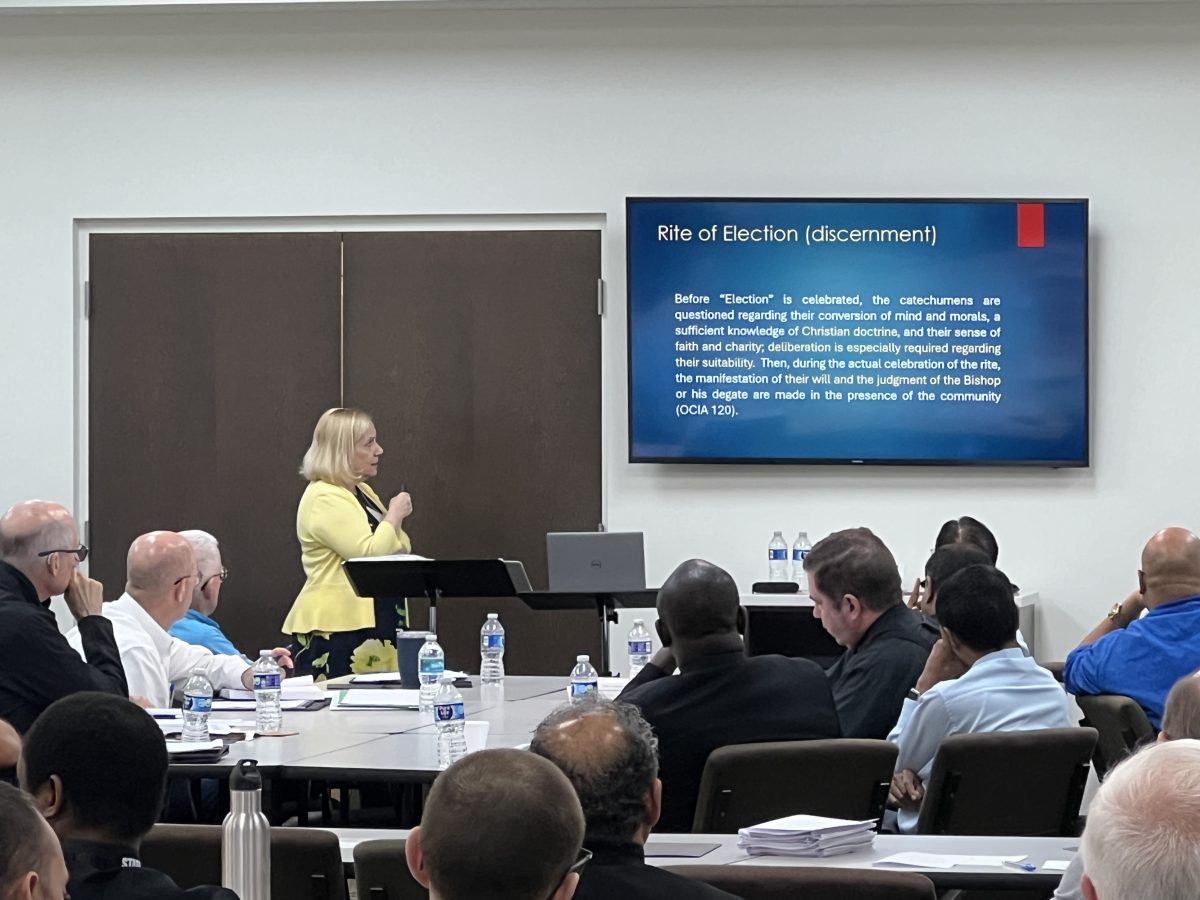ORLANDO | For the past several decades, the Rite of Christian Initiation of Adults (RCIA) in the United States is often described how a non-Catholic became Catholic.
However, a new translation has been released and what once was RCIA is now OCIA, the Order of Christian Initiation of Adults. The transition is an opportunity to review how the Church accompanies someone as they become Catholic. Why the change?
The short answer has to do with translations. Since Latin is the universal language of the Roman Catholic Church, texts for Mass and other sacramental celebrations are first issued in Latin. Other translations follow with certain guidelines provided by the Vatican. In 2001, those guidelines changed and the first texts to be retranslated into English were the words of the Mass. Many still remember when, “And also with you” became “And with your spirit” and when “consubstantial” became a regular word in the Creed. These are two examples of the effect of the new guidelines. Since then, several other liturgical texts have been retranslated into English and released. The Order of Christian Initiation of Adults (OCIA) is the most recent of these retranslated texts.
What has changed? The first and most obvious difference is the new title and acronym: Order of Christian Initiation of Adults (OCIA). The term “Order” more accurately reflects the journey to become Catholic. What many may not realize is that becoming Catholic, especially if someone is not already baptized, is a process that includes several liturgical rites and that these are ordered in a particular way. The ordering of these rites serves as a spiritual support to those becoming Catholic, and the parish community is key to their celebration.
In addition to the new title and acronym, the new translation provides clearer terms for those becoming Catholic. For instance, the term “convert” is never to be used for someone who is already validly baptized, since their conversion to Christ already happened sacramentally. Instead, “convert” is reserved for those not baptized and converting to Christian belief. Additionally, only someone who is unbaptized and has entered the second stage of the process (called the Catechumenate) is to be called a “catechumen”. Anyone who has been validly baptized when they enter the process is called a “candidate”.
Another change is the U.S. Conference of Catholic Bishops updated instructions for the process. The National Statutes for the Christian Initiation of Adults are much clearer regarding the rights and obligations of catechumens. It specifies when an unbaptized person becomes a “catechumen” they can participate in the charitable works of the Church, take advantage of opportunities for Catholic parents, and be buried in a Catholic cemetery. Additionally, they are obligated to participate in the Liturgy of the Word, grow in understanding Catholic teachings, and mature in living Catholic life.
There are other more subtle changes that affect those more involved in initiation ministry.
The new statutes take effect Dec. 1, 2024. While the updated texts may be used at that time, full and mandatory implementation begins on Ash Wednesday, March 5, 2025.
Implementing the new translation presents an opportunity for reflection. First, how does the parish community welcome and form people who want to become Catholic? Second, parishioners should ask themselves if they are actively inviting people to the Catholic Church and walking with them through the process.
As St. Paul explains in Rom 10:14, “But how can they call on Him in whom they have not believed? And how can they believe in Him of whom they have not heard? And how can they hear without someone to preach?”
By John Molloy, Special to the Florida Catholic, November 27, 2024

